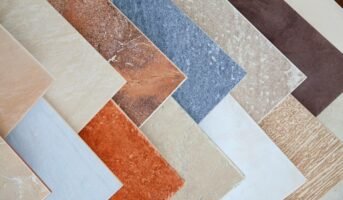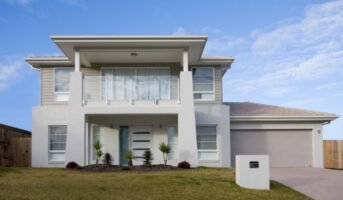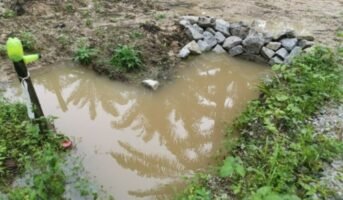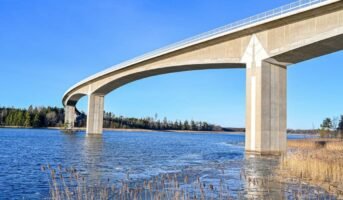Decks are super versatile spaces that serve various purposes in a home. On the one hand, these outdoor spaces can be the perfect tranquil retreat from the hustle and bustle of everyday life, while on the other hand they are also suitable for large gatherings to catch up with your loved ones. Since it is inspired from a ship’s deck, it is no surprise that the most commonly used material for decking is wood. But with time, decks have evolved to encompass more styles and a range of other materials. In this article, we will discuss about 20 such materials that can be used for decking.
See also: Summer landscaping tips to glam up outdoor space
Pressure-treated wood
Carrying a long legacy of being used for decking, wood is the classic and most trusted decking material. Pressure-treated wood combines the timeless virtues of this material with modern technology to offer an alternative that displays higher resistance to rot, decay and insects. While it is a cost-effective option, regular maintenance like sealing and staining is recommended for best results.
Cedar
Yet another type of wood that makes an excellent choice for outdoor decking purposes is cedar. Alongside a gorgeous reddish-brown colour, it also offers a pleasant aroma, adding a touch of richness and luxury to the space. Moreover, it requires minimal maintenance apart from periodic staining so it does not lose its natural colour.
Redwood
Similar to cedar, this natural wood is also a highly-sought choice for decking. Its durability and natural ability to resist insects makes it perfect for outdoor applications such as decking. Sporting a bright and rich colour, redwood fairs well enough without much maintenance but regular staining is recommended to preserve the colour.
Composite decking
Offering the look of wood at a way lower price, composite decking is a great alternative to regular wood. It is composed of a mixture of wood fibres and plastic that effortlessly resembles the look of natural wood, while also being resistant to rot, warping and insects. Despite lacking the durability of natural wood, this option provides ample choices when it comes to colour and style.
PVC decking
If you are looking for a low-effort decking material, PVC is the solution to your woes. It is composed of 100% plastic and offers superior resistance to moisture, rot and insects. Moreover, it requires little to no maintenance apart from occasional cleaning in the long run, making it a convenient alternative to wood.
Aluminium decking
Lightweight, durable and virtually requiring zero maintenance, aluminium is the perfect material for outdoor applications. This material naturally possesses properties that make it resistant to rot, rust and insects. Available in various colours and finishes, it is sure to satisfactorily meet your aesthetic requirements as well.
Bamboo decking
Bring a unique, exotic touch to your deck using bamboo. Alongside offering visual interest and natural resistance to moisture, pests and decay, it is also an eco-friendly material that promotes sustainable living. Simply offer the material periodic sealing and you are good to go!
Composite bamboo decking
Composite bamboo decking offers the natural beauty of bamboo with added durability and resistance to harsh external elements by combining bamboo fibres with recycled plastics. It upholds the eco-friendly nature of regular bamboo decking while also being much easier to maintain.
Thermally modified wood
If you are looking for a wooden aesthetic that possesses greater resistance to external elements, thermally modified wood might be the one for you. This material is manufactured by putting regular wood through an extensive heat treatment process that increases its ability to withstand moisture, decay and insects. Moreover, it imitates the natural colour of wood without the maintenance requirements.
Brazilian walnut
Commonly known as ipe, this hardwood displays exceptional durability and resistance to decay and pests. While originally coming in a rich, dark colour, it weathers into a silver-grey hue over time, a special quality that adds to its charm and makes for a unique decking.
Brazilian teak
Another exceptionally durable variety of hardwood, Brazilian teak or cumaru possesses excellent resistance properties. With its rich, golden-brown colour, it is ideal if you wish to add some warmth to your space. Moreover, it requires almost no maintenance for the upkeep of its appearance.
Garapa
Garapa is a durable and resistant variety of hardwood that comes in a dense, yellow-brown colour. It is preferred for its smooth and attractive grain pattern that does not require any long-term maintenance and can admirably withstand decay.
Modified wood
Providing superior ability to resist decay, insect and moisture, modified wood undergoes comprehensive chemical and thermal treatments to obtain a more functional version of regular wood. It has a consistent appearance and does not require a lot of maintenance due to the treatments it goes through.
Plastic lumber
Durable, low-maintenance and resistant to rot and pests, plastic lumber is a material made from recycled plastic. Alongside providing these beneficial properties, this material also comes in various styles and colours for you to choose from so that you do not have to compromise the aesthetics.
Recycled rubber decking
Ideal for wet environments, recycled rubber decking is an option that offers excellent slip resistance. Being a natural material, it is eco-friendly, and comes in various colours and patterns that meet diverse aesthetic requirements. It combines the durability of rubber with the properties required for external applications, making it a perfect choice for a decking material.
Stone decking
Looking for a durable decking option that provides a luxurious feel? Stone decking might be the one for you. Consider slate or travertine and achieve a deck that is resistant to moisture, stains and scratches, and is super classy to look at. For best results, it is recommended to reseal the surface periodically.
Concrete pavers
Durable and versatile, concrete pavers are available in various shapes and sizes. These make a popular choice for outdoor decking since they are easily available, convenient to install and have minimal maintenance requirements.
Brick pavers
Achieve the classic and timeless look for your outdoor decking with brick pavers. These are a functional option for wet areas for their slip resistance. Moreover, they offer superior durability and have easy care requirements.
Ceramic tiles
Durable, easy to clean and resistant to moisture and stains, ceramic tiles are a versatile option when it comes to outdoor decking. The wide variety of colours and patterns they are available in brings forth endless design possibilities for your outdoor space.
Rubber tiles
Just like rubber decking, tiles made of rubber also offer the much sought-after properties of durable and slip resistance. Moreover, they provide a highly comfortable feel underfoot and promote sustainable living with their eco-friendly properties.
FAQs
What is the best decking material for outdoor use?
The best material depends on your preferences. While composite decking is preferred for their low-maintenance properties, natural woods provide aesthetics and aluminium decking prioritises durability.
What decking material requires the least maintenance?
Composite decking and PVC decking require the least maintenance compared to natural woods apart from occasional cleaning with a mild soap solution.
Which decking material is the most environmentally sustainable?
Composite decking made from recycled materials, rubber decking and sustainably sourced wood options are some environmentally-friendly materials.
What decking material is ideal for high-traffic areas?
Composite decking, aluminium decking and hardwoods provide the durability required for decking high-traffic areas.
How do I choose between natural wood and composite decking?
While natural wood provides a more organic look, it requires more maintenance. Composite decking can be a low-maintenance and aesthetically versatile option and yet lack the natural look of wood.
What decking material is best for a pool deck?
Slip-resistant and moisture-resistant materials such as PVC decking and rubber decking are most suited for pool decks.
What is the longevity of different decking materials?
Natural wood decking often lasts from 10 to 30 years, while composite and PVC decks can last for more than 25 years. Several types, such as aluminium decking, can last longer than 30 years.
| Got any questions or point of view on our article? We would love to hear from you. Write to our Editor-in-Chief Jhumur Ghosh at [email protected] |

Riddhi Chatterji is currently pursuing a master’s degree in English literature from University of Delhi. Her meticulous attention to detail and the desire to make a learning experience out of every opportunity has allowed her to work with different forms of textual content for digital platforms, ranging from social media to news desks. When not working or studying , you can find her with her head buried in a book, discovering new music and movies, or out and about exploring the city on the metro.











